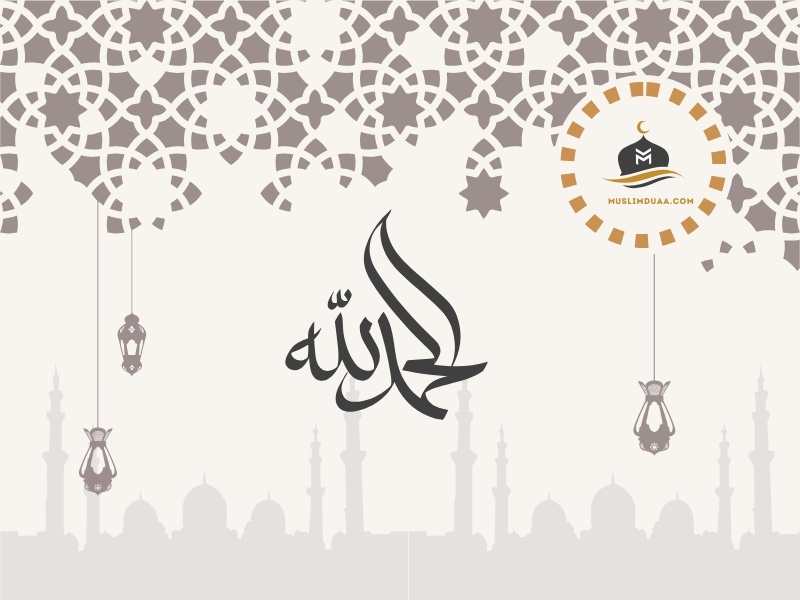Dua For The Sick
In the name of Allah, the Most Gracious, the Most Merciful.
Illness, whether physical or emotional, is a deeply human experience. It can bring moments of great hardship, pain, and uncertainty. Yet, within the Islamic tradition, even these moments are filled with spiritual meaning and opportunity. In fact, the Prophet Muhammad ﷺ reminded us that sickness is not only a test but a form of divine purification

The Prophet (ﷺ) said, “No fatigue, nor disease, nor sorrow, nor sadness, nor hurt, nor distress befalls a Muslim, even if it were the prick he receives from a thorn, but that Allah expiates some of his sins for that.”
:
“No fatigue, nor disease, nor sorrow, nor sadness, nor hurt, nor distress befalls a Muslim—even if it were the prick he receives from a thorn—but that Allah expiates some of his sins for that.”
(Sahih al-Bukhari, 5641)
Sunnah.com Reference
In moments of affliction, the believer is not abandoned. Rather, Allah ﷻ is near. He listens, He comforts, and He heals. One of the most beautiful gifts in these moments is duʿāʾ—the supplication of the heart, whispered from the tongue, rising to the Lord of the Worlds.
Dua from the Sunnah for the Sick
Among the most well-known and beloved supplications taught by the Prophet ﷺ is the following, used when visiting or treating someone who is ill:
اللَّهُمَّ رَبَّ النَّاسِ أَذْهِبِ الْبَأْسَ، اشْفِ أَنْتَ الشَّافِي، لاَ شِفَاءَ إِلَّا شِفَاؤُكَ، شِفَاءً لاَ يُغَادِرُ سَقَمًا
Transliteration:
Allāhumma Rabba al-nās, adhhib al-ba’s, ishfi anta al-Shāfī, lā shifā’a illā shifā’uk, shifā’an lā yughadiru saqaman
Translation:
“O Allah, Lord of mankind, remove the harm and heal, You are the Healer, there is no healing except Your healing—a healing that leaves behind no illness.”
This duʿāʾ was often recited by the Prophet ﷺ when someone in his family or community was sick. He would place his right hand on the affected area and call upon Allah as “al-Shāfī”—The One who heals. This duʿāʾ is a complete and humble acknowledgment that true healing can only come from Allah ﷻ.
Narrated by ʿĀ’ishah (may Allah be pleased with her)
Sahih al-Bukhari, 5743
Sunnah.com Reference
Dua of Comfort and Hope: La Ba’sa Tahūr In Shā’ Allah
The Prophet ﷺ also offered words of hope to those who were ill—not only praying for their healing but framing their sickness as a form of spiritual purification.
لَا بَأْسَ، طَهُورٌ إِنْ شَاءَ اللَّهُ
Transliteration:
Lā ba’sa, ṭahūrun in shāʾ Allāh
Translation:
“Do not worry; it is a purification, if Allah wills.”
This was a standard expression of comfort and optimism from the Prophet ﷺ when visiting the sick. It reminded the ill person that their suffering was not meaningless, but a means of forgiveness and reward.
Narrated by Jabir (may Allah be pleased with him)
Sunan Ibn Majah, 1438 – Hasan (good)
Sunnah.com Reference
A Simple Yet Powerful Supplication: Ask Allah by His Name al-ʿAẓīm
Another duʿāʾ often recited for healing is one of the shortest, but most impactful. The Prophet ﷺ recommended this to be said seven times for the sick:
أَسْأَلُ ٱللَّهَ ٱلْعَظِيمَ رَبَّ ٱلْعَرْشِ ٱلْعَظِيمِ أَنْ يَشْفِيَكَ
Transliteration:
As’alu Allāha al-ʿAẓīm, Rabba al-ʿArsh al-ʿAẓīm, an yashfiyaka
Translation:
“I ask Allah, the Mighty, Lord of the Mighty Throne, to heal you.”
This duʿāʾ can be said for oneself or for others. The Prophet ﷺ said that whoever recites it seven times while visiting a sick person, and it is decreed for that person to be healed, Allah will grant the healing.
Sunan Abu Dawud, 3106 – Sahih
Sunnah.com Reference
Dua and Sickness: A Pathway to Nearness
The act of making duʿāʾ while ill—whether for oneself or others—is not just about asking for physical recovery. It is about returning to Allah, acknowledging one’s need, and surrendering to His wisdom.
The Prophet ﷺ said:
“When Allah wants good for someone, He afflicts him with trials.”
— Sahih al-Bukhari, 5645
Sunnah.com Reference
Through illness, a believer is given the opportunity to earn forgiveness, humility, and reward—especially when they respond with patience and trust. When we recite these duʿāʾs, we’re not just seeking a cure—we’re seeking connection.
The Reward of Visiting the Sick
Islam emphasizes not only praying for the sick but also physically being present with them. Visiting a sick person is an act of compassion, mercy, and brotherhood that earns great reward in the sight of Allah ﷻ.
The Prophet Muhammad ﷺ said:
“When a Muslim visits his (sick) Muslim brother, he is harvesting the fruits of Paradise until he returns.”
— Sahih Muslim 2568
Sunnah.com Reference
In another narration, the Prophet ﷺ said:
“Whoever visits a sick person, a caller (angel) calls out from the heavens: ‘May you be blessed, your walk is blessed, and may you dwell in a place in Paradise.’”
— Ibn Majah 1443 – Hasan
Sunnah.com Reference
These hadiths make it clear that visiting the ill is not merely a social custom or gesture of kindness—it is a highly rewarded act of worship that reflects the prophetic way.
Why This Act is So Beloved:
- It provides comfort and companionship to someone who may be feeling weak or isolated.
- It affirms brotherhood and solidarity within the ummah.
- It reminds both the visitor and the ill person of the reality of life, dependence on Allah, and the virtues of patience.
The Prophet ﷺ himself regularly visited the sick and made duʿāʾs for them, embodying what it means to care for others with both heart and presence.
How to Maximize the Reward When Visiting the Sick
To fully embody the spirit and Sunnah of visiting the sick:
- Begin with the sunnah duʿāʾ such as: “La ba’sa, ṭahūrun in shāʾ Allāh” (No harm, it is purification, if Allah wills).
- Make heartfelt duʿāʾs using prophetic words (see earlier section).
- Speak with compassion and positivity, without burdening the sick person with lengthy or inappropriate talk.
- Keep your visit brief, unless the ill person desires company.
- Reflect on the mercy and wisdom of Allah, and use the moment to remind gently about patience and hope in His decree.
Final Reflection
Visiting the sick and praying for them are acts rooted in mercy, both divine and human. They remind us that while illness is part of life’s trials, it also becomes a doorway to forgiveness, reward, and nearness to Allah for both the one afflicted and the one offering support.
In a world often distracted by material concerns, the simple act of sitting with someone who is unwell, making duʿāʾ, and smiling with hope—revives the Sunnah and revives hearts.
May Allah ﷻ make us among those who remember the sick, pray for them, and walk the path of mercy that leads to His Paradise
Practical Tips for Making Duʿāʾ for the Sick
- Have Sincere Intention (Niyyah): Call upon Allah with a sincere heart, believing He will respond.
- Mention Allah’s Beautiful Names: Names like al-Shāfī (The Healer) and al-Raḥmān (The Most Merciful) hold great power.
- Be Consistent: Repeating a duʿāʾ regularly increases its impact and reflects reliance.
- Accompany with Good Actions: Charity, patience, and forgiveness enhance the spiritual value of duʿāʾ.
- Say the duʿāʾ in Arabic if possible, or say the meaning in your own language with khushūʿ (deep humility).
May Allah ﷻ, the Healer of hearts and bodies, shower His mercy upon all who are suffering; grant swift recovery, patience in trial, and forgiveness through hardship. May our duʿāʾs be accepted, and our pain transformed into purification and closeness to Him.
Even in the face of illness and adversity, we are afforded an opportunity to grow closer to Allah s.w.t, to demonstrate our faith and resilience through patient prayer. Ameen.
Further Reading and Duas Dua for Anxiety and Stress


